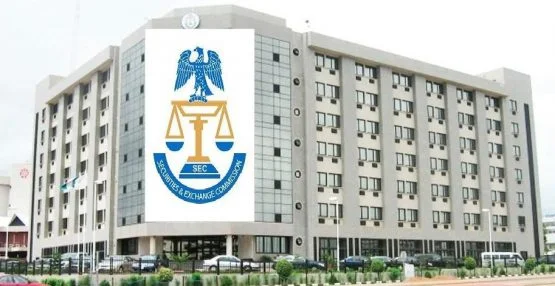Nigeria, a country at the vanguard of Africa’s technological surge, has experienced a pronounced upswing in the adoption of cryptocurrency. However, the interplay between its government and the burgeoning crypto sector has been characterized by cautious advances, interspersed with moments of regulatory constraint.
This evolving scenario took another turn recently with the Securities and Exchange Commission (SEC) unveiling a fresh set of directives aimed at businesses embedded in Nigeria’s crypto-asset sphere.
This move comes shortly after a February episode where Nigerian officials severed access to prominent cryptocurrency exchanges, including Binance, Coinbase, and Kraken.
While the Central Bank of Nigeria’s (CBN) reversal of a prior ban on banks servicing crypto enterprises had kindled optimism among digital currency advocates, suggesting a potential softening of the state’s stance, the SEC’s latest pronouncement signals a more nuanced reality.
At the crux of this regulatory tightening is the SEC’s intent to safeguard Nigeria’s capital markets from unlawful ventures. The regulatory body, underpinned by concerns over the illicit use of digital assets, has outlined updated parameters for those operating in the nation’s crypto domain. This is particularly in response to a February clampdown, during which the Nigerian government restricted access to leading global exchanges.
One of the more opaque elements of this new development is the SEC’s reported demand for a substantial $10 billion penalty from Binance, alleging the facilitation of $26 billion in unverifiable funds within Nigeria’s borders. Moreover, it is rumored that Binance officials, summoned by Nigerian authorities, faced detainment last month, adding another layer to the ongoing friction.
The SEC’s revised guidelines seem to focus on erecting barriers to prevent bad actors from infiltrating Nigeria’s capital markets through crypto channels. However, specifics regarding how these so-called “criminals” will be identified remain elusive.
In an effort to reinforce the integrity of Nigeria’s financial system, the SEC is set to impose stringent regulations on crypto operations. These reforms encompass:
Anti-Money Laundering (AML) and Combating the Financing of Terrorism (CFT) Provisions: The SEC is preparing a comprehensive manual that will spell out fortified AML/CFT protocols for crypto operators. These measures are likely intended to counter concerns regarding the potential misuse of digital currencies for nefarious ends. Stricter user identification practices, continuous monitoring of transactions, and mandatory reporting of suspicious activities are anticipated, making it more challenging for wrongdoers to leverage crypto for laundering money or financing terrorism.
Enhanced Onboarding Processes: It’s probable that the new guidelines will introduce a more rigorous vetting process for businesses wishing to venture into Nigeria’s crypto market. This could entail reinforced Know Your Customer (KYC) standards, obligating exchanges and other platforms to collect detailed personal data from their users, such as government-issued identification, proof of residence, and tax identifiers. Crypto operators might also face deeper scrutiny concerning their financial records, including evaluations of their anti-money laundering protocols and cybersecurity measures, in a bid to filter out malicious actors.
Tackling Unregistered Activities: The SEC has expressed an aim to prevent nefarious elements from exploiting Nigeria’s capital markets through cryptocurrencies. While the criteria for detecting such elements remain unclear, the updated rules will likely necessitate stringent background checks on users, along with the compulsory reporting of any dubious activities. The SEC may even blacklist wallets or addresses linked to illicit conduct, as part of broader efforts to cleanse the crypto space.
Additionally, there may be stiffer licensing prerequisites for businesses wanting to engage in Nigeria’s crypto market. Such initiatives are designed to curtail the misuse of digital assets for illicit purposes, while also safeguarding Nigerian investors from scams and fraudulent schemes.
Unsurprisingly, the SEC’s pronouncements have sent waves of concern rippling through the Nigerian crypto ecosystem. Many industry stakeholders fear that excessively stringent regulations could hamper innovation and stymie the growth of an industry that’s just beginning to flourish. Entrepreneurs have voiced concerns that onerous KYC processes and bureaucratic licensing procedures might create barriers to entry, deterring potential innovators. Others fear that stringent rules could drive some operators underground, thus eluding regulatory oversight altogether.
Nevertheless, the SEC has also indicated a willingness to collaborate with legitimate crypto operators who adhere to the new directives. Plans for consultations with industry stakeholders suggest that there may still be room for a balanced approach to regulation, one that seeks to protect the financial system without stifling the sector’s innovative potential.
As Nigeria navigates this regulatory tightrope, the nation presents a captivating case study of how governments might approach the governance of digital currencies. The challenge lies in striking the delicate balance between fostering innovation and protecting financial systems from exploitation. How Nigeria handles this balance will likely set the stage for the future of crypto regulation in the country—and perhaps even provide a blueprint for other African nations grappling with similar dilemmas.
In this shifting landscape, one thing remains clear: Nigeria’s crypto scene is in flux, and the next few months will be pivotal in shaping the future of digital currencies within its borders.




















